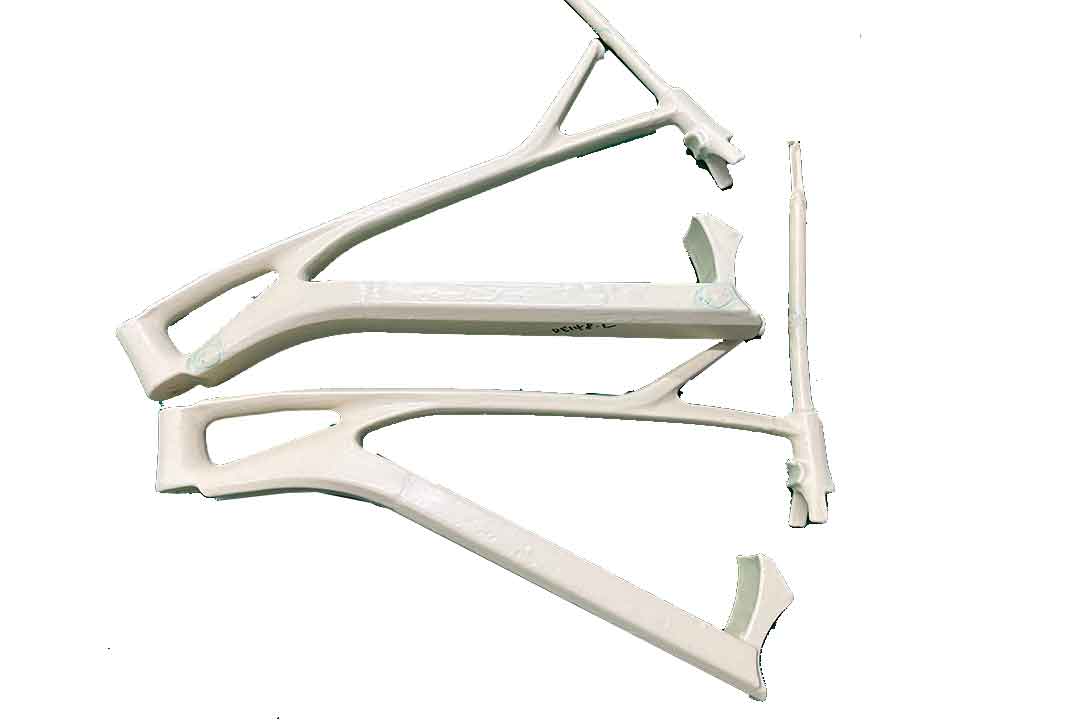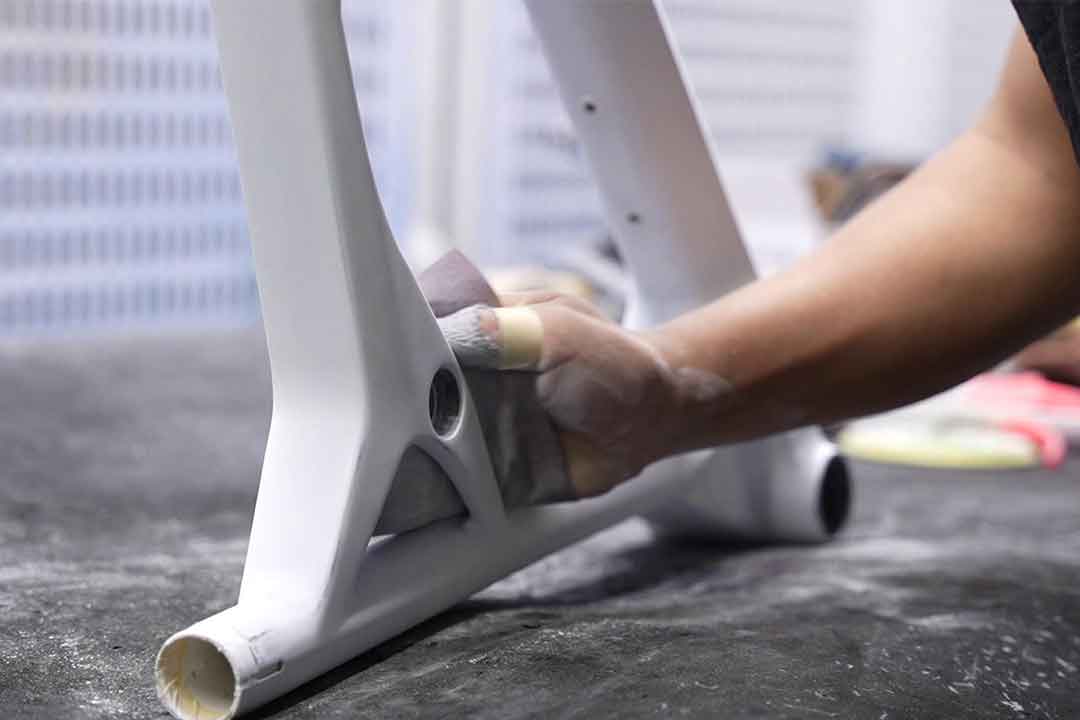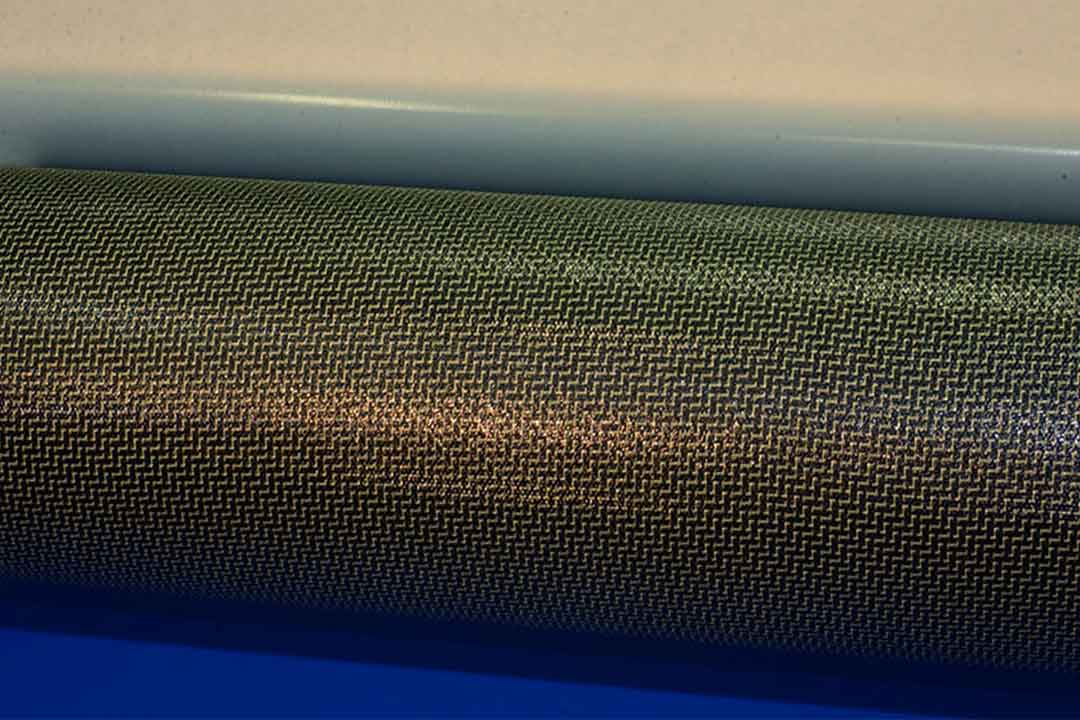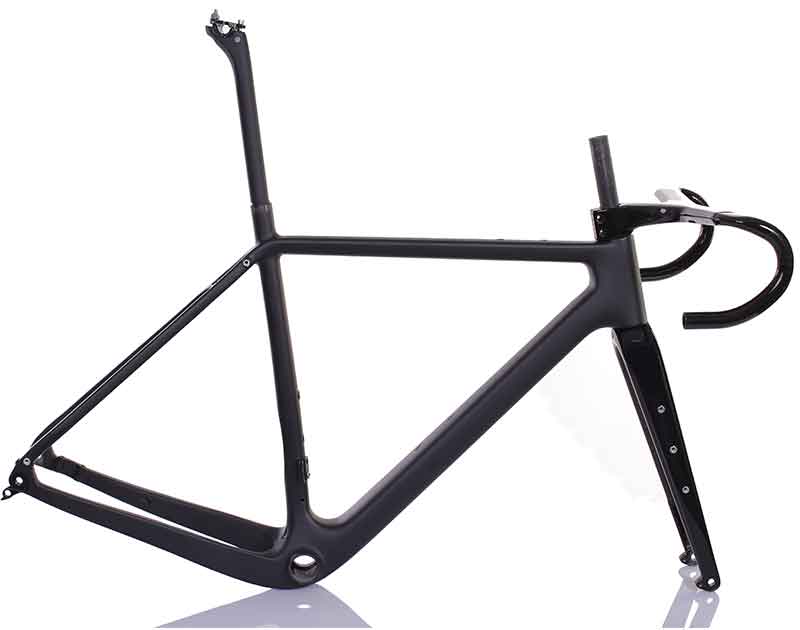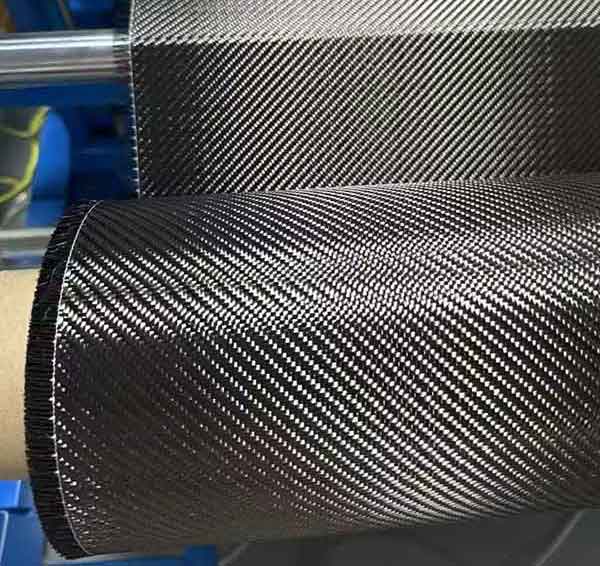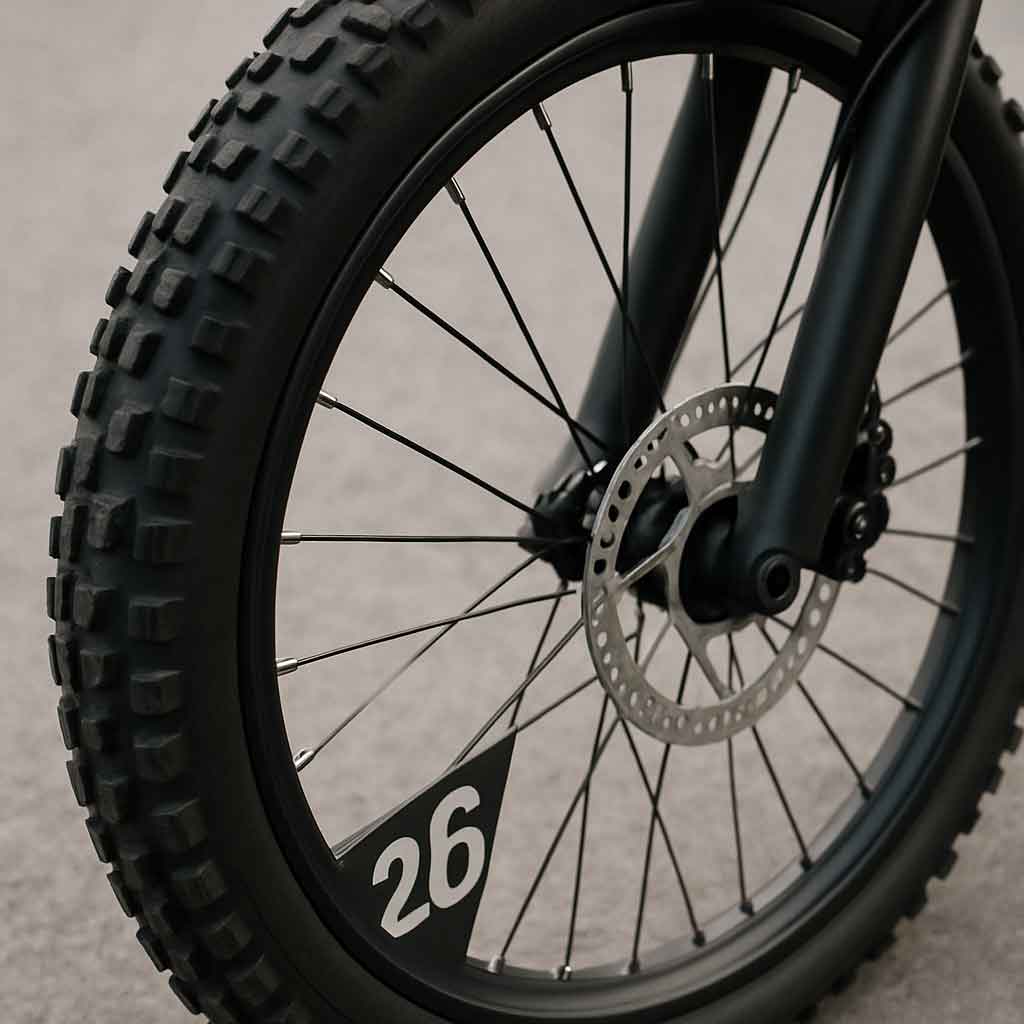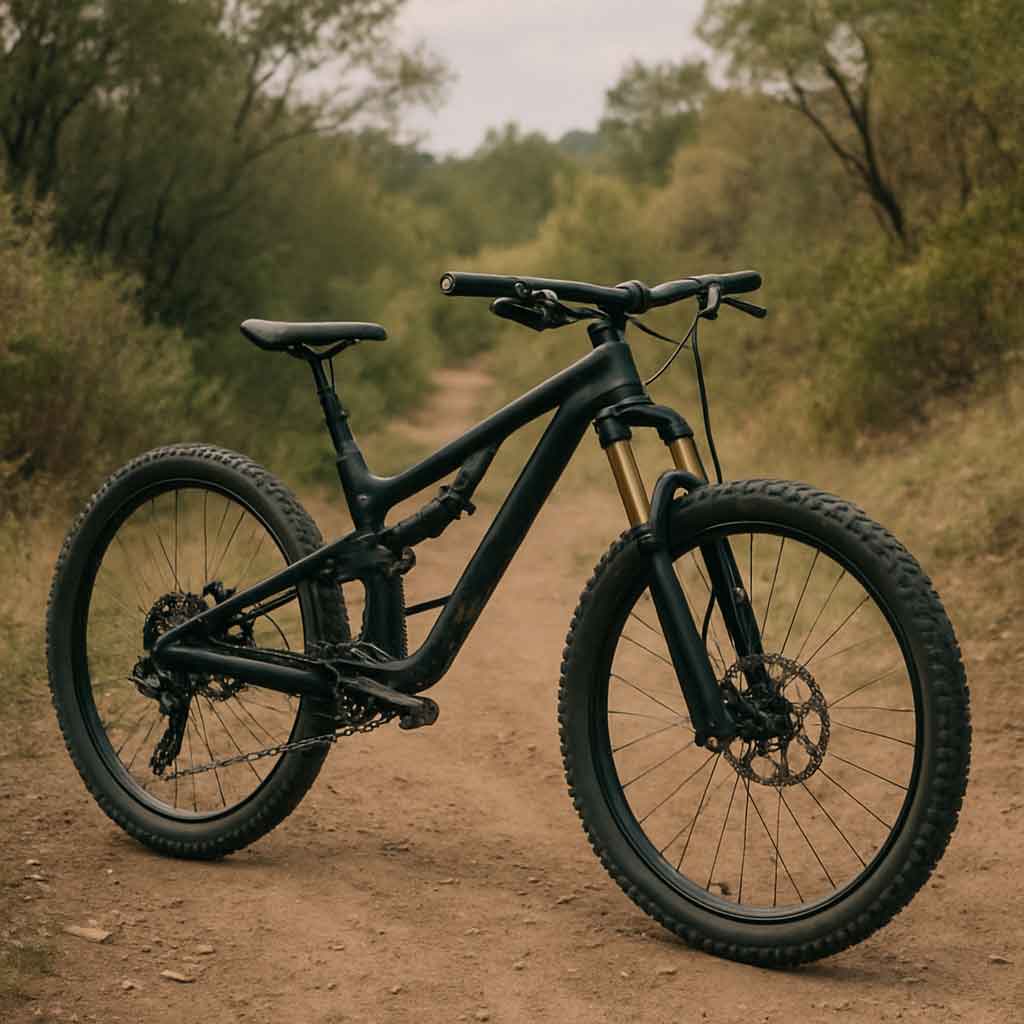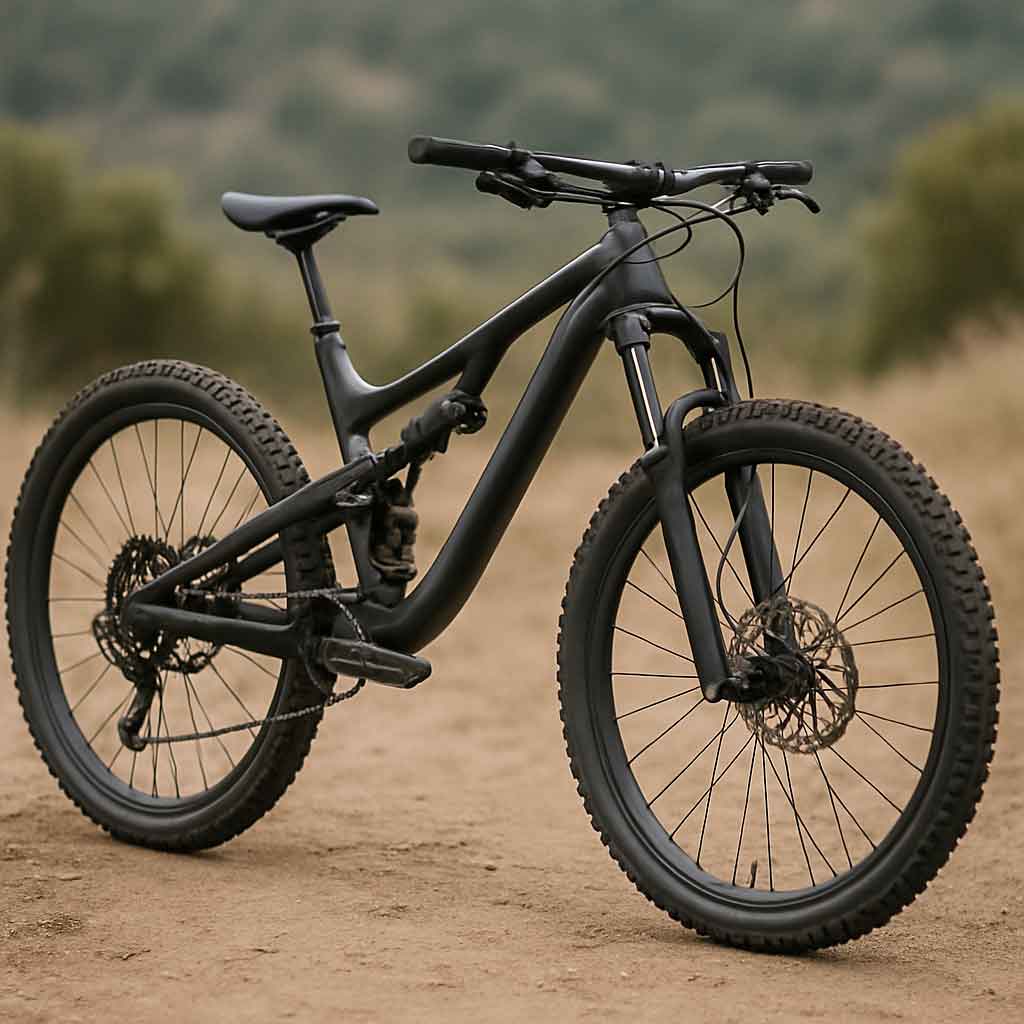Welcome to Mondince Bike - A well-known factory specialized in produce carbon bike frame and other parts since 2007.
Titanium Gravel Frames: Durability Meets Performance
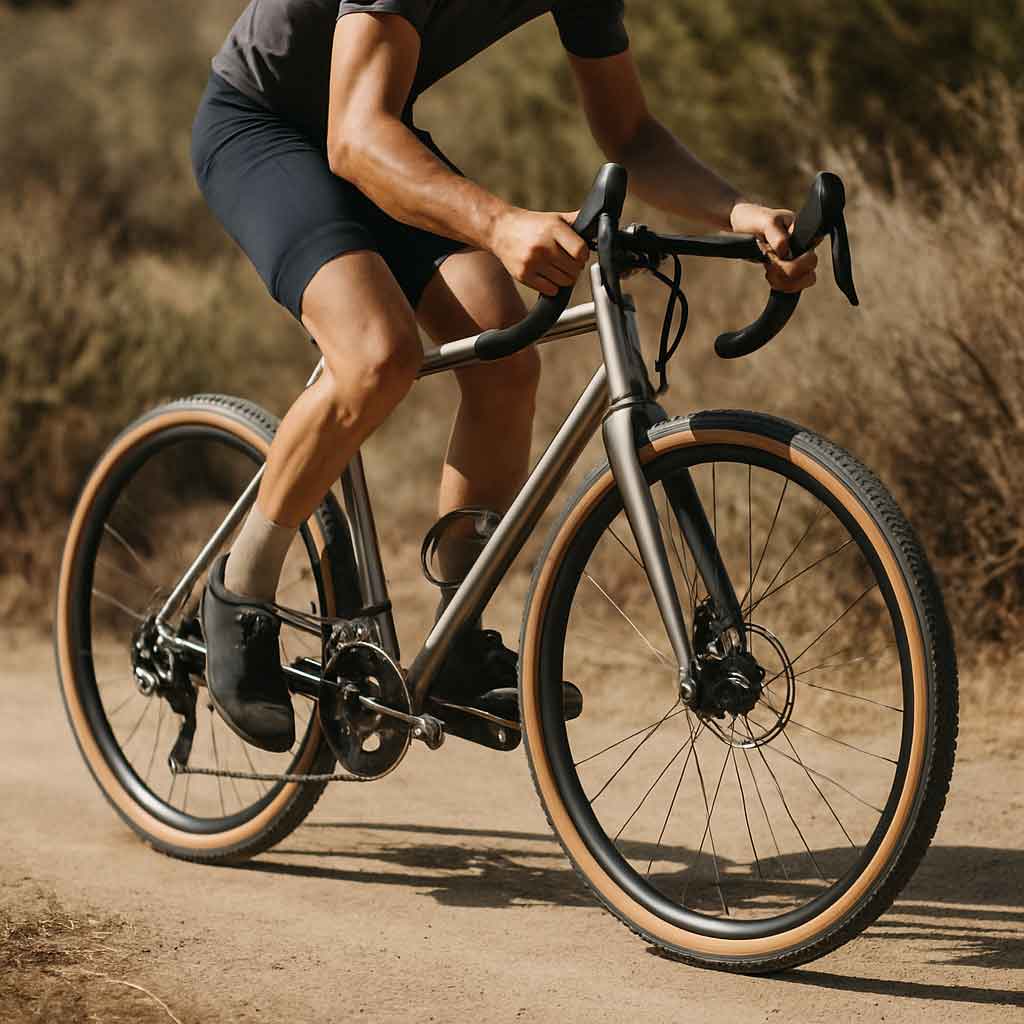
Gravel riding has surged in popularity, capturing the hearts of cyclists who crave the adrenaline of road biking combined with the rugged challenges of mountain biking. As more enthusiasts venture off the beaten path, selecting the ideal bike frame material becomes crucial to maximizing their experience. Enter titanium gravel frames—a remarkable fusion of durability and performance, offering the perfect solution for those seeking adventure across a variety of terrains.
Why Frame Material Matters
The choice of bike frame material is not just a technical decision; it significantly influences ride quality, longevity, and overall performance. For gravel biking, where the terrain shifts from smooth, undulating paths to rugged, rocky trails, selecting the right material is pivotal. Common materials include aluminum, carbon, steel, and titanium, each boasting distinct strengths and weaknesses.
Understanding the Impact on Ride Quality
Ride quality is profoundly affected by frame material, dictating how vibrations are absorbed and how responsive the bike feels. For gravel riders, this can mean the difference between a jarring ride and a smooth, enjoyable journey. Materials like titanium offer a unique blend of flex and responsiveness, ensuring that riders remain comfortable regardless of the terrain.
Longevity and Durability Considerations
Durability is another key factor influenced by frame material. Gravel bikes endure significant stress from unpredictable terrains, making the robustness of the frame critical. While aluminum and carbon can offer lightweight solutions, they may lack the longevity that materials like titanium provide, especially under rugged conditions.
Performance Across Varied Terrains
Performance is not solely about speed; it's about how well a bike can handle diverse terrains. Titanium frames excel in offering a balance between strength and weight, allowing riders to maintain control and agility on a variety of surfaces. This adaptability makes titanium a preferred choice for serious gravel cyclists.
The Rise of Titanium
Titanium has emerged as a favored material in the cycling world, particularly for gravel bikes, due to its unique combination of properties. Known for its unmatched strength and lightweight characteristics, titanium is rapidly becoming the go-to material for those seeking a versatile and resilient ride. Let's delve deeper into the factors contributing to the rise of titanium gravel frames among avid cyclists.
Historical Context and Evolution
The use of titanium in cycling has evolved over the decades, initially gaining popularity for its application in high-performance road bikes. Its transition into the gravel biking scene marks a significant shift, driven by cyclists' demand for a material that can withstand the rigors of off-road adventures while still offering a premium riding experience.
The Unique Properties of Titanium
Titanium's allure lies in its unique properties—offering a high strength-to-weight ratio, natural resistance to corrosion, and an inherent flexibility that enhances ride comfort. These characteristics make it particularly well-suited for gravel biking, where the terrain can be as unpredictable as the weather.
Market Trends and Growing Popularity
The growing popularity of titanium gravel frames is reflected in market trends, with more manufacturers introducing titanium models and enthusiasts opting for this robust material. The shift towards titanium is fueled by its reputation for longevity and the increasing recognition of its performance benefits among the cycling community.
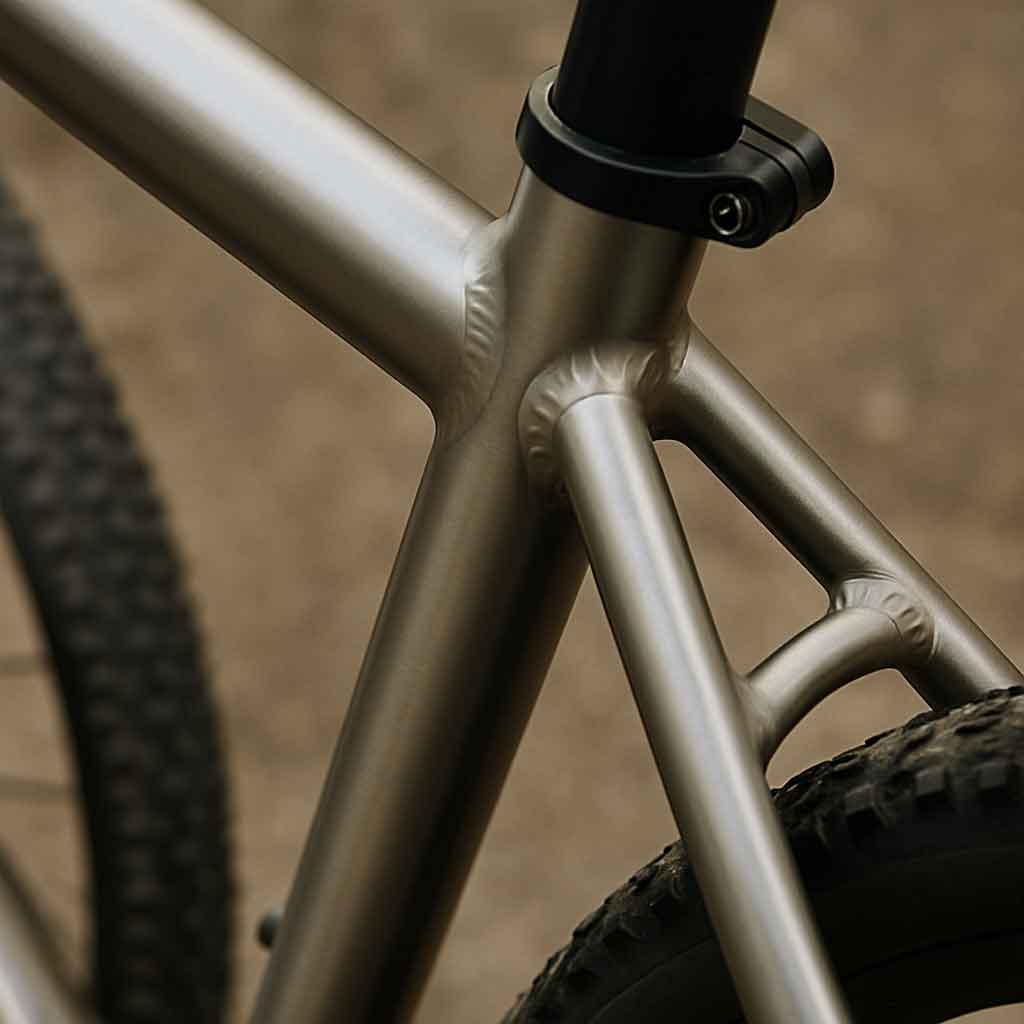
Benefits of Titanium Gravel Frames
Titanium gravel frames offer a plethora of benefits that appeal to cyclists who prioritize performance and durability. From exceptional strength to impressive comfort, titanium frames stand out in the crowded landscape of bike materials. Let's explore these benefits in more detail.
Durability and Strength
Titanium is celebrated for its outstanding strength-to-weight ratio, meaning it can endure significant stress and impact without the added bulk. Unlike aluminum, which is prone to dents, or carbon, which may crack under extreme conditions, titanium provides a robust and reliable solution for the unpredictable nature of gravel riding.
Resilience to Impact and Stress
The resilience of titanium frames is one of their most defining features. Whether navigating rocky trails or enduring the occasional fall, titanium can handle the pressure without compromising its structural integrity. This makes it an ideal choice for cyclists who push their limits on challenging terrains.
Longevity Under Harsh Conditions
Titanium's durability extends to its ability to withstand harsh environmental conditions. From scorching sun to torrential rain, titanium frames remain unaffected, ensuring that they continue to perform optimally over time. This longevity is a key reason why many cyclists consider titanium a worthwhile investment.
Maintenance and Repair Considerations
While titanium frames are known for their durability, they also offer ease of maintenance and repair. Unlike carbon, which may require specialized repair techniques, titanium frames can often be repaired by skilled welders, adding to their appeal for long-term use.
Comfort and Flexibility
One of the standout features of titanium is its natural flex, which contributes to a comfortable ride even on rugged terrain. This inherent flexibility acts as a natural shock absorber, reducing vibrations and rider fatigue. For gravel enthusiasts who embark on long-distance journeys, titanium's ability to smooth out the ride is invaluable.
Natural Shock Absorption
Titanium's flexibility allows it to absorb shocks from uneven surfaces, providing a smoother ride compared to stiffer materials. This shock absorption is particularly beneficial for gravel riders who face a variety of terrains, as it minimizes discomfort and enhances ride enjoyment.
Enhanced Rider Comfort
The comfort provided by titanium frames is unmatched, making long rides more enjoyable and less taxing on the body. The material's ability to flex and adapt to the terrain ensures that riders remain comfortable, even during extended adventures.
Flexibility and Handling
Titanium's flexibility also contributes to better handling, allowing riders to maintain control on tricky trails. The material's ability to bend slightly without losing strength ensures that riders can navigate sharp turns and sudden obstacles with ease.
Resistance to Corrosion
Unlike steel, which can rust, or aluminum, which can corrode, titanium is naturally resistant to the elements. This makes titanium gravel frames particularly well-suited for riders who frequently encounter wet or muddy conditions. With minimal maintenance, a titanium frame can retain its sleek appearance and functionality for years.
Natural Resistance to Environmental Factors
Titanium's resistance to corrosion is a significant advantage for cyclists who ride in varying weather conditions. Whether it's rain, mud, or humidity, titanium frames remain unaffected, ensuring that they continue to perform and look great over time.
Minimal Maintenance Requirements
One of the appealing aspects of titanium is its low maintenance requirements. Unlike steel, which requires regular treatment to prevent rust, titanium frames need little more than occasional cleaning to maintain their pristine condition.
Longevity and Aesthetic Appeal
The combination of corrosion resistance and durability means that titanium frames maintain their aesthetic appeal for years. Cyclists can enjoy the sleek, modern look of titanium without worrying about rust or wear, making it a timeless choice for gravel bikes.
Performance on the Trail
Titanium gravel frames excel in various performance aspects, making them a top choice for serious cyclists. From handling and stability to weight considerations, titanium frames offer a balanced performance that enhances the overall riding experience.
Handling and Stability
Gravel riding demands a bike that can handle diverse terrains with ease. Titanium frames offer excellent stability and precise handling, allowing riders to navigate tricky trails confidently. The balanced weight distribution enhances control, making it easier to tackle sharp turns and sudden obstacles.
Navigating Diverse Terrains
The ability to handle diverse terrains is crucial for gravel riders, and titanium frames excel in this area. Whether it's loose gravel, dirt paths, or rocky trails, titanium provides the stability needed to tackle any surface confidently.
Precision and Control
Precision and control are essential for navigating technical trails, and titanium frames deliver on both fronts. The material's natural flex and strength ensure that riders can maintain control even in challenging conditions, enhancing safety and enjoyment.
Balancing Weight and Stability
Titanium frames strike a perfect balance between weight and stability, providing a ride that's both agile and secure. This balance is particularly beneficial for gravel riders who need to maneuver through varied terrains without compromising stability.
Weight Considerations
While not as lightweight as carbon, titanium offers a favorable balance of weight and strength. This makes it an attractive option for riders who prioritize durability without sacrificing too much in terms of weight. For those who often carry additional gear or embark on bikepacking adventures, titanium's robustness is a significant advantage.
Weight vs. Strength Trade-offs
The trade-off between weight and strength is a common consideration for cyclists, and titanium offers an excellent balance. While slightly heavier than carbon, titanium provides superior strength, making it ideal for those who prioritize durability.
Benefits for Bikepacking Adventures
For bikepackers who carry additional gear, the strength of titanium frames is a major advantage. The material can handle the extra weight without compromising performance, ensuring a reliable ride even on extended trips.
Practicality for Long-Distance Rides
Titanium's balance of weight and strength makes it practical for long-distance rides, where durability and comfort are key. Cyclists can enjoy the benefits of a lightweight frame without sacrificing the robustness needed for gravel adventures.

by Mitchell Luo (https://unsplash.com/@mitchel3uo)
Comparing Titanium to Other Materials
Choosing the right frame material involves comparing titanium with other popular options. Each material has its own set of advantages and drawbacks, and understanding these can help cyclists make an informed decision.
Titanium vs. Aluminum
When comparing titanium to aluminum, several factors come into play. Aluminum frames are generally lighter and more affordable, making them a popular choice for entry-level bikes. However, they lack the durability and comfort that titanium provides. For serious gravel riders, titanium's resilience to wear and tear is worth the investment.
Cost and Accessibility
Aluminum frames are often more accessible due to their lower cost, making them a popular choice for beginners. However, the long-term benefits of titanium, including its durability and ride quality, often justify the higher initial investment for serious riders.
Ride Comfort and Vibration Absorption
Titanium frames offer superior ride comfort compared to aluminum, thanks to their natural vibration absorption properties. This makes titanium a better choice for gravel riders who prioritize comfort on longer rides.
Durability and Longevity
While aluminum is lightweight, it lacks the durability of titanium, particularly in harsh conditions. Titanium frames offer longevity and resilience, making them a better long-term investment for gravel cyclists.
Titanium vs. Carbon
Carbon fiber is celebrated for its lightweight properties and aerodynamic design. However, it can be prone to damage from impacts and requires careful maintenance. Titanium, while slightly heavier, offers superior durability and a more forgiving ride, making it ideal for rugged gravel adventures.
Weight and Aerodynamics
Carbon frames are known for their lightweight and aerodynamic advantages, making them popular among racers. However, for gravel riders who prioritize durability and versatility, titanium offers a more robust alternative.
Impact Resistance and Maintenance
Carbon frames require careful handling and maintenance, as they can be prone to damage from impacts. Titanium's impact resistance and low maintenance requirements make it a more practical choice for gravel adventures.
Comfort and Ride Quality
While carbon offers a stiff and responsive ride, titanium provides a more comfortable and forgiving experience. Gravel riders who value comfort over stiffness often prefer titanium for its ability to smooth out rough terrain.
Titanium vs. Steel
Steel frames are known for their classic feel and durability, but they are heavier than titanium. While steel can provide a smooth ride, it is susceptible to rust, requiring regular maintenance. Titanium offers a rust-free, lightweight alternative that still delivers a comfortable and reliable experience.
Classic Appeal and Ride Feel
Steel frames have a classic appeal and are known for their smooth ride feel. However, titanium offers similar ride comfort with the added benefits of being lighter and rust-resistant.
Weight and Rust Resistance
The weight of steel can be a drawback for gravel riders, especially on long or uphill rides. Titanium's lighter weight and natural rust resistance provide a more practical solution for modern cyclists.
Maintenance and Longevity
While steel requires regular maintenance to prevent rust, titanium frames need minimal upkeep, offering a long-lasting and hassle-free riding experience. This makes titanium an attractive option for those seeking a durable and low-maintenance frame.
Gravel Riding Tips with Titanium Frames
To fully capitalize on the benefits of a titanium frame, it's essential to adopt certain riding techniques and maintenance practices. These tips will help cyclists optimize their gravel riding experience and prolong the life of their titanium frames.
Adjust Tire Pressure
To maximize the benefits of a titanium frame, it's essential to adjust tire pressure according to the terrain. Lower pressure can enhance comfort and grip on rough surfaces, while higher pressure is ideal for smoother paths.
Optimal Pressure for Varied Terrains
Adjusting tire pressure based on the terrain is crucial for maximizing ride comfort and performance. Lowering pressure on rough surfaces improves grip and reduces vibrations, while higher pressure on smooth paths enhances speed and efficiency.
Balancing Comfort and Performance
Finding the right tire pressure balance is key to achieving both comfort and performance. Experimenting with different pressures can help riders find the optimal setting for their specific riding style and terrain.
Impact on Handling and Control
Tire pressure can significantly affect handling and control. Properly adjusted pressure ensures that riders maintain stability and responsiveness, particularly on challenging trails.
Regular Maintenance
Although titanium is low-maintenance, regular checks and cleaning ensure optimal performance. Pay attention to the drivetrain and components, and keep the frame clean to prevent dirt build-up.
Routine Checks and Cleaning
Regular maintenance is essential to keep a titanium frame in top condition. Routine checks of the drivetrain, brakes, and other components, along with regular cleaning, help maintain performance and longevity.
Component Care and Lubrication
Taking care of components such as the chain, gears, and brakes is vital for smooth operation. Regular lubrication and inspection prevent wear and tear, ensuring that the bike performs optimally.
Frame Inspection and Upkeep
While titanium is resistant to corrosion, regular inspection of the frame for any signs of damage or wear is important. This ensures that any potential issues are addressed promptly, prolonging the life of the frame.
Choose the Right Geometry
Selecting a frame with the appropriate geometry is crucial for comfort and handling. Consider factors such as stack and reach to find a frame that suits your riding style and body type.
Understanding Frame Geometry
Frame geometry plays a significant role in how a bike handles and fits the rider. Understanding the nuances of stack, reach, and other geometry factors is essential for selecting the right frame.
Customization for Individual Preferences
Many cyclists benefit from customizing their frame geometry to suit their specific preferences and riding style. This can involve adjusting the handlebar height, seat position, and other elements to optimize comfort and performance.
Impact on Ride Experience
The right frame geometry enhances the overall ride experience, providing comfort and control. Cyclists should consider their riding style, terrain preferences, and body type when selecting a frame to ensure a perfect fit.
Conclusion: The Case for Titanium
In the world of gravel biking, where durability and performance go hand-in-hand, titanium gravel frames stand out as a superior choice. Their unique blend of strength, comfort, and corrosion resistance makes them ideal for tackling diverse terrains and weather conditions. While the initial investment may be higher, the long-term benefits and exceptional ride quality make titanium a worthy contender for any serious gravel rider.
Embrace the adventure with a titanium gravel frame and discover the perfect balance of durability and performance on every ride. With the right frame and a passion for exploration, the possibilities are endless, and every path holds the promise of a new adventure.



